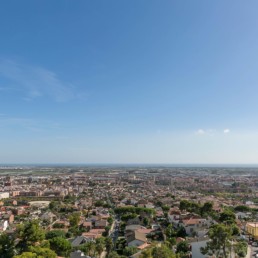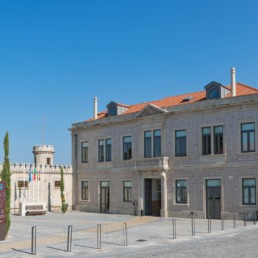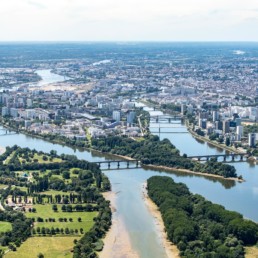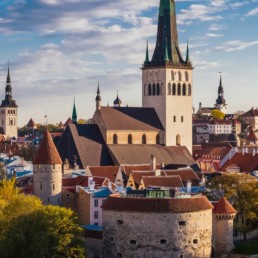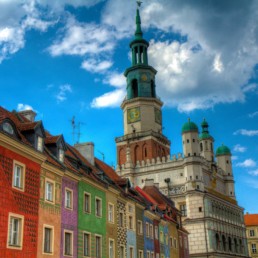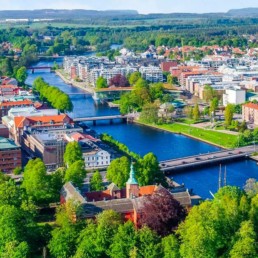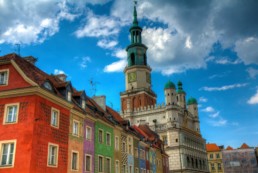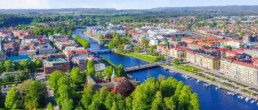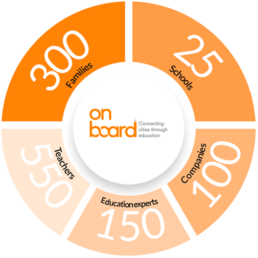Tallinn
Tallinn
Capital of Estonia, Tallinn (445.688 inhabitants) is the leading scientific and academic centre and core of business activity in Estonia.
Well-located and communicated with a seaport, a nearby airport, railway station and easy, affordable inner-city mobility, Tallinn is a prosperous city with a growing population with only 8% unemployment rate (among them 11% youth (age 16-24) unemployment). Tourism, transport and logistics and trade are its main economic sectors. Over 60 Information and Technology companies of different sizes operate in the city, including 3 large telecommunications companies, e.g. Telia with 1.800 employees.
Tallinn is member of the Education Commission at EUROCITIES and has positioned itself as an educating city, with its sights on making kindergarten and school studies more lifelike while introducing entrepreneurship and soft skills to kids and young people. The 338M € (year 2020) for education represents the biggest part of the 752M € (year 2020) municipal budget, supporting the Education Department’s 60 staff members who coordinate education in the city involving 195 municipal educational institutions.
Achievements
During ON BOARD project, Tallinn Education Department was preparing its new education strategy “Tallinn 2035”, part of which is a separate education strategy. The Educational Innovation Network project has provided us the opportunity to embed the approach of a city-wide collaboration in education involving a diversity of stakeholders.
Throughout the ON BOARD transfer period, learning was intense and rich for the Tallinn URBACT local stakeholders, and particularly fruitful for headmasters and teachers of the target districts. Tallinn has taken advantage of this momentum and applied for, and was successful in, getting an URBACT National Practice Transfer, which will greatly expand the reach of the transfer methodology across Estonia for further mutual learning and exchange of experiences with other cities’ education communities.
Other key learning and achievements for Tallinn include:
- A tighter collaboration within the municipality and a new approach to Youth. Structurally the Education Department has incorporated the Youth Division (which was previously with Sports Department), and now manages activities with children and young people aged 0-26. This opens up opportunities for stronger and more coherent links for the Educational Innovation Network.
- A clearer view of the practicalities required in education innovation and new relationships and contacts between schools that allowed to learn about projects, tools and methods as well as skills needed for implementing them.
- Encouraged the Enterprising School program, which entails agreements with the Education Department (in line with the Educational Strategy of Tallinn City 2035).
- A more widespread understanding that all different kinds of education and non-education institutions have their own place in children’s lives and all are important. All that cooperation among different stakeholders has started in the city, the stage is set to continue.
- In turn, Tallinn has contributed with its experience of the advanced digitalised education system and with projects running in the city that have been adopted by other ON BOARD partners, for example, the Smart Month initiative that empowers children to think creatively and to collaborate, using and experimenting with exciting learning methods and digital solutions. Tallinn’s Smart Month became the Smart Week in Poznan, who has adopted the initiative to replicate locally.
Tallinn’s Educational
Innovation Network Key
Community Members

Our
impact

Schools
participating
in ON BOARD
9

Teachers and principals
participating
in ON BOARD
90

Students
involved in ON BOARD projects and activities
4405

Families
directly participating in activities and meetings
10

Companies
participating in ON BOARD activities and meetings
4

Universities
that have contributed to the project
1

Local entities
participating in ON BOARD activities and meetings
6
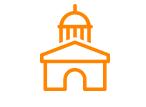
Mayors and councillors
who have participated in meetings or events of the network
1

People from the municipal staff
involved in the project
15

Pilot Projects
initiated in your city
4

ULG
meetings
40
Tallinn voices
Kick off Meeting. Tallinn
ULG MEETING. Tallinn (Teacher)
ULG MEETING. Tallinn (Students)
Tallinn Good Practice - Students - Kadaka Lasteaed
Tallinn Good Practice - Families - Art Gymnasium
ULG MEETING. Tallinn (Teacher)
ULG MEETING. Tallinn (Kindergarten Teacher)
See what
ON BOARD partner cities
have achieved
Diversity bolstered ON BOARD’s learning and exchange project. They all represent a diversity of focuses and interests in education, but they also have in common Education as a strategic development priority for their cities
Viladecans
Viladecans
Viladecans, with its 65.779 inhabitants, Barcelona Metropolitan Area is well communicated -15 min. from El Prat airport, 20 min. from Barcelona’s main University area and 35 min. from Barcelona’s centre. It is home to 1.565 companies, ranging from small ICT innovation companies (Click it) to big multinational Spanish headquarters (Unilever).
Its restless spirit and focus on the city’s progress have led the City Council to focus its actions on fostering and consolidating a variety of educational innovation projects in order to help boost the city’s educational success for over the last decades. In 1990 Viladecans joined the Chart of Educating Cities; it is member of the UNESCO Global Network of Learning Cities, and takes part in national and international education projects. Viladecans is keen on boosting an education where “everyone educates” (families, business, entities…) and bring education beyond the schools. By fostering educational success, the city aims at ensuring better opportunities and quality of life for all and making the city more attractive, modern and suited to the city profile and the changing needs in the labour market.
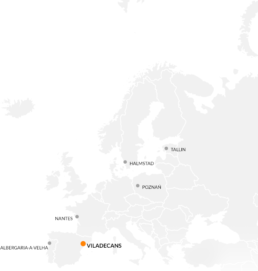
Achievements
Our achievements in Viladecans are mostly in relation with the improvement of our Good Practice as set out in the initial Improvement Plan that we committed to at the project start. We considered a total of 4 enhancements areas for the Educational Innovation Network throughout the project life.
As a result, we have:
- Paved the way for the set up and running of the Educational Innovation Network Driver Group, a group that is tightly linked to the URBACT local group participating in the ON BOARD project activities and that will greatly contribute to the autonomy and sustainability of the local Network. As an example of its relevance, this group quickly reacted to address and offer solutions focusing on the needs emerging from the pandemic situation in Viladecans’ schools.
- Strengthened the participation of new stakeholders in the Network that weren’t full part of it, namely the local entities. Their participation in the URBACT local group allowed them to visit partner cities and encouraged an open-mindedness when it came time to collaborating with the local Educational Innovation Network project.
- Sit different municipal departments at the same table to create a set of education indicators for measuring changes and impacts of the Viladecans’ efforts in the education policies. The indicators will inform policy-makers and community stakeholders and help them improve implementation, decision-making and investments.
- Approved a new project with young people to empower and attract them to participate in the Educational Innovation Network. The Good Friends project begins in the first term of the 2021-2022 academic year which involves high school volunteer students monitoring and coaching younger students arriving to the education centre for the first time.
Beyond the ON BOARD Improvement plan, and as a lead city in the transfer process, we managed to:
- Initiate and or plan, a total of 6 new education projects transferred from the different ON BOARD Cities
- Plan for the next step in the Educational Innovation Network communication strategy supported by a new Educational Network Communication Hub, a digital platform specific for the Education members.
Viladecans' Educational
Innovation Network Key
Community Members

Our
impact

Schools
participating
in ON BOARD
6

Teachers and principals
participating
in ON BOARD
13

Students
involved in ON BOARD projects and activities
6

Families
directly participating in activities and meetings
8

Companies
participating in ON BOARD activities and meetings
2

Universities
that have contributed to the project
2

Local entities
participating in ON BOARD activities and meetings
6

Mayors and councillors
who have participated in meetings or events of the network
3

People from the municipal staff
involved in the project
10

Pilot Projects
initiated in your city
3

ULG
meetings
9
Viladecans voices
TM2. Viladecans
TM3. Viladecans
TM4. Viladecans
Viladecans Good Practice - Students Career Counselling Day
Viladecans Good Practice - Families AMPA 2.0
Viladecans - How can families participate in schools
See what
ON BOARD partner cities
have achieved
Diversity bolstered ON BOARD’s learning and exchange project. They all represent a diversity of focuses and interests in education, but they also have in common Education as a strategic development priority for their cities
Poznań
Poznań
With a population of 540,000, Poznań is one of the oldest and largest cities in Poland and is a significant centre for trade, services, industry, culture, higher education and science. Halfway between Berlin and Warsaw, it boasts of a strong network of financial institutions, consulting agencies, associations of entrepreneurs, universities and schools with a business education profile. Cluster initiatives and tech-based cooperation networks are becoming even more popular among entrepreneurs. Innovation and creative industries, including a strong start-up environment and the gaming industry, are on the rise. The unemployment rate (1,3% in 2018) is nearly three times lower than the national average, too.
3rd in the ranking of learning cities (Schuman Foundation/Polityka Insight), Poznań has nearly 50 research and development facilities employing 5.000 people, 25 higher education institutions, and it nurtures links between the economy and science in its technology parks, Business and Science Incubator and the Poznań Supercomputing and Networking Centre.
Achievements
ON BOARD Network project has given more momentum to Poznan to achieve its specific education goals in the District of Jeżyce, with 3 public primary schools. The District Council wanted to make those schools attractive for parents and students (especially new district residents) who tend to choose other schools outside the district for their kids.
The Educational Innovation Network proposal has served to attract interest and increase engagement of the local community, identifying the needs of schools and parents as a means to improve the quality of teaching and the sense of pride within the education community. The URBACT networking method and innovative approaches have been instrumental to promote joint community activities of the three Jeżyce schools, their parents and the teachers.
In particular, specific learning and achievements include:
- Stronger motivation and mobilization of a group of directors and teachers, counting on the continued support from the District Council and the City Hall.
- A new mind-shift for schools, now cooperating, rather than competing: intensive meetings and exchange between schools’ teachers led to closer and more cooperative relations. Together we all have access to more projects, workshops and interesting interdisciplinary initiatives, bigger than the single and ordinary school activities.
- The use of new technologies and new tools for communication and work, mostly intensified during the online meetings due to the pandemic situation.
- The new knowledge generated by other community stakeholders, such as Poznan Supercomputing and Networking Centre (PSNC) and the Poznan University of Technology, whose research is helping diagnose the situation of schools and their needs in the District. Also, closer engagement between teachers and PSNC Design Thinking Institute, involving workshops for school staff.
- Improved quality of local projects in design and implementation. Joint work of teachers, parents, students and the District Council means more and better knowledge and resources involved. The newly developed and piloting projects “Moja Jeżycka Story”, “PiGo and creating “Jeżyce Legend” put the 3 district schools to work together and proved to generate bigger interest and better results.
Poznań's Educational
Innovation Network Key
Community Members

Our
impact

Schools
participating
in ON BOARD
9

Teachers and principals
participating
in ON BOARD
100

Students
involved in ON BOARD projects and activities
1

Families
directly participating in activities and meetings
1

Companies
participating in ON BOARD activities and meetings
1

Universities
that have contributed to the project
1

Local entities
participating in ON BOARD activities and meetings
1

Mayors and councillors
who have participated in meetings or events of the network
1

People from the municipal staff
involved in the project
10

Pilot Projects
initiated in your city
3

ULG
meetings
34
Poznań voices
Kick off Meeting. Poznan
Poznan Good Practice - Students - Youth Council in Jeżyce
Poznan Good Practice - Students - Youth City Council
Poznan Good Practice - Students - The Fund of the Pupils Councils
See what
ON BOARD partner cities
have achieved
Diversity bolstered ON BOARD’s learning and exchange project. They all represent a diversity of focuses and interests in education, but they also have in common Education as a strategic development priority for their cities
Albergaria-a-Velha
Albergaria-a-Velha
With its 25.200 inhabitants, located at a strategic road communication node in the north-centre area of Portugal, 2,5 hours from Lisbon, 45 min. from Porto and 15 min. from Aveiro, all of them with important national sea ports, its geostrategic position has helped it become an important industrial hub with 2.350 businesses and over 3.300 jobs in metallurgy alone. Despite its growing economy and population (faster than national and regional rates), youth unemployment is high.
Recognising a shortage in its qualified workforce, the city has prioritised education: a) to improve overall population education results, and b) to respond to the new labour market needs and challenges. This includes integrating new pedagogical proposals, inspiring a “learning by doing” approaches for innovation projects and getting parents’ associations more involved to consolidate the sense of education community.
The efforts are paying off, with school dropout going from 3,3% to 1,2% since 2011 and the rate of finished compulsory education today stands at 86%.
Achievements
The recognition of the role and influence that local political leaders can play in support of education innovation has been a key success factor for Albergaria-a-Velha. Our Mayor and, particularly, our Deputy Mayor, Catarina Mendes, have been closely following and participating in the transfer process and have ensured the financial sustainability of the Network project.
The small size of Albergaria has also been an asset in this project because it has meant that the education community members who already knew each other from previous local initiatives, have taken a step forward as a network of educational innovators.
Among the key successes the following can be highlighted:
- We have now a more innovative and dynamic framework for innovative action under the umbrella of the Educational Innovation Network. This has enabled different agents (educational and non-educational) to coordinate their efforts in ways that otherwise they would not have been able.
- ON BOARD has helped a group of education stakeholders to initiate new dialogues, opportunities and deeper meanings about education innovation. The involvement and commitment of different partners catalysed each one’s knowledge and activated the feeling of belonging. The project has promoted a greater sense of being part of the education community of innovators.
- The network project has also created the space for sharing and exploring new practices for and with schools, teachers, students, families and community members, including companies, through carrying out different pilot projects.
- We have gained greater visibility of local projects and the community by “exporting” our own experience. For example, the initiative called PiGo, a creative and enterprising event, based on Pi (π, 3.14 ...) and organised by students’ themselves. This project has been transferred to other ON BOARD partners who will be reproducing it in their cities.
- Through ON BOARD, too, our school community itself was able to know about projects by other local partners. Other piloting initiatives for 2022 will be Tech@School, Robotics, and Adventures of Feelings and Thoughts. The latter will further generate and enrich a reflection already ongoing in the city, around students´ well-being, their social and psychological development for their integral growth.
Albergaria-a-Velha’s Educational
Innovation Network Key
Community Members

Our
impact

Schools
participating
in ON BOARD
20

Teachers and principals
participating
in ON BOARD
293

Students
involved in ON BOARD projects and activities
3241

Families
directly participating in activities and meetings
2

Companies
participating in ON BOARD activities and meetings
36

Universities
that have contributed to the project
1

Local entities
participating in ON BOARD activities and meetings
17

Mayors and councillors
who have participated in meetings or events of the network
2

People from the municipal staff
involved in the project
6

Pilot Projects
initiated in your city
3

ULG
meetings
13
Albergaria-a-Velha voices
Kick off Meeting. Albergaria
Albergaria Good Practice -Students - Junior Entrepreneurship Fair
Albergaria Good Practice - Students - PiGo
See what
ON BOARD partner cities
have achieved
Diversity bolstered ON BOARD’s learning and exchange project. They all represent a diversity of focuses and interests in education, but they also have in common Education as a strategic development priority for their cities
Nantes
Nantes
Nantes (330.000 inhabitants) is undergoing increased levels of redevelopment and regeneration, following the demise of such traditional local industries as shipbuilding and shipyard activities. Indeed, both the local and metropolitan area economies are growing, balancing activities like IT services, biotechnology, financial activities with industry (aeronautics, food processing, mechanical materials). More than 25.000 companies provide 167.000 jobs. Nantes is also a University city with high research potential and a pool of skills recognised by local businesses, earning the ‘French Tech’ label assigned to French cities for their start‐up ecosystems (2014).
Education has always been a priority area for Nantes, which considers it central for social cohesion and a sustainable society. Despite its prosperity, unemployment is still at 14% and youth unemployment at 26%. The city is member of the Education Commission at EUROCITIES and has participated in numerous European projects on Education, including URBACT Gen-Y, Prevent and Stay-Tuned network projects.
Achievements
Despite the larger dimensions of Nantes with respect to Viladecans (Nantes has a total of 4 Educational Territories and 11 General Districts), and the highly complex administration -also for the education system-, our city has managed to successfully integrate aspects of the Educational Innovation Network Good Practice to the work at the district level. This was done thanks to the pilot projects that involved different stakeholders in two city education territories, North and South. The most important challenge for us now is to take the collaborative and 360º education approach experimented within the last 3 years and embedded into the new PEdT (Projet Educatif De Territoire).
Among specific learning and achievements in Nantes, we have:
- More integration of ON BOARD’s cross-cutting and networking approaches so as to show an approach that can be used at a wider territorial level.
- Increased sense of autonomy and flexibility. The ON BOARD Educational Innovation Network and the URBACT local group method allowed us to facilitate innovative initiatives with a real sense of autonomy, while adhering to the rules set out in the French education system.
- Expanded opportunities and more empowerment to the voices of students. ON BOARD provided the framework whereby schools and teachers could have the opportunity to work together in a common integrated way, enabling the voices of students to be heard (for example, Patrick Vasse from a secondary school and Françoise Gillot-Gravouil from a primary school, who knew each other before, finally got to work together on a project called “Body and well-being”, with students as the creative protagonists).
- New links amongst community members who support education innovation. Our URBACT local group included new external stakeholders and pedagogical professionals, establishing new connections and opportunities depending on each one’s capacity, for example, Air Pays de la Loire, Aelea Linea, Agissons pour l’emploi, ADN Ouest and the University of Nantes.
- Progress using communication tools and channels for collaboration in education in new ways, in large part thanks to the lively approaches and innovative uses of existing media shown by Viladecans, while continuing to use current channels (like magazine publications) to reach target audiences.
Nantes' Educational
Innovation Network Key
Community Members

Our
impact

Schools
participating
in ON BOARD
4

Teachers and principals
participating
in ON BOARD
15

Students
involved in ON BOARD projects and activities
85

Families
directly participating in activities and meetings
3

Companies
participating in ON BOARD activities and meetings
2

Universities
that have contributed to the project
1

Local entities
participating in ON BOARD activities and meetings
1

Mayors and councillors
who have participated in meetings or events of the network
0

People from the municipal staff
involved in the project
12

Pilot Projects
initiated in your city
3

ULG
meetings
13
Nantes voices
Kick off Meeting. Nantes
Kick off Meeting. Nantes
TM3. Nantes
TM3. Nantes
TM4. Nantes
See what
ON BOARD partner cities
have achieved
Diversity bolstered ON BOARD’s learning and exchange project. They all represent a diversity of focuses and interests in education, but they also have in common Education as a strategic development priority for their cities
Halmstad
Halmstad
Halmstad (100.000 inhabitants) is on the Swedish west coast, 1 hour by train from Gothenburg and 2 hours from Copenhagen. The city is growing and expanding and its favourable location allows businesses to develop and tourism to thrive. Halmstad’s biggest employers are the Municipal Council and the County Council, followed by companies in trade and tourism. Sector-diverse small and mid-sized companies are prospering, too.
Halmstad has a port for freight transports and is one of Sweden’s leaders for timber exports. Its renowned University educates 12,000 students and its main faculties are Innovation (Engineering), Computing, and Health and Lifestyle. Unemployment is relatively low in the city (5,2%, 2017) and so is youth unemployment (7,8%, 2017).
The Municipal Council wants to develop Halmstad as a city of knowledge and a city of experiences: ‘…where people grow and develop with life-long learning, creativity, entrepreneurship and innovative thinking’. Knowledge, therefore, is ever present in local policies. The 150 M€ budget for Education is the highest share of the municipal expenses: remarkably, about 8.000 € per student.
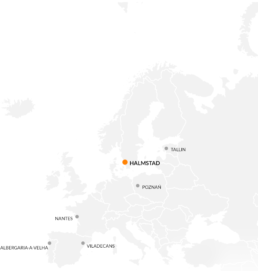
Achievements
Making the most of the ON BOARD Transfer Network Project, in Halmstad we have:
- Reinforced the city’s social sustainability goals. Our Vice Mayor Jenny Axelson has put it, “Transnational collaboration projects like ON BOARD that connect public policies (education) with local business and associations provide the necessary push to work as we need to: together and thinking broadly. With schools working together with other schools, authorities and civil society, this reflects Halmstad's goal of social sustainability, since Halmstad wants to be an inclusive municipality.”
- Improved cooperation between the two municipal Education Departments (Primary and Secondary levels), and made the project and the Educational Innovation Network model visible and well understood amongst city officials.
- Increased resources from one of its educational departments, allocated to a new person for the Educational Innovation Network projects in school area North: Oskarström/Åled, with a view to a future scale-up to another one of the total 5 City District. Area North includes 10 pre-schools and 3 primary schools.
- Nurtured a forum that enables to plan, implement and evaluate joint work. There is a wider and deeper sense of the enriching benefits that networking creates in the community, out of the dialogues and exchange of experiences. “It creates a common language and a sense of belonging and pride that we can change things together” (local entrepreneur). For our teachers, this has been energizing through their-to-peer learning and co-teaching.
- Created new collaborations to develop the salutogenic perspective in Oskarströms. The "Happy Brain cell" project is where school staff, in collaboration with the university, has produced teaching material that creates awareness about how good habits are important for students´ overall well-being and success in school.
- Launched the “Stroller Walks” for good habits to engage with parents from a very early stage. It is unusual in Sweden to have parents participate in school projects, through ON BOARD we have developed a concept for pram walks to find a form of collaboration with and between parents.
Halmstad’s Educational
Innovation Network Key
Community Members

Our
impact

Schools
participating
in ON BOARD
13

Teachers and principals
participating
in ON BOARD
389

Students
involved in ON BOARD projects and activities
996

Families
directly participating in activities and meetings
100

Companies
participating in ON BOARD activities and meetings
10

Universities
that have contributed to the project
2

Local entities
participating in ON BOARD activities and meetings
10

Mayors and councillors
who have participated in meetings or events of the network
2

People from the municipal staff
involved in the project
20

Pilot Projects
initiated in your city
5

ULG
meetings
40
15%
Improvement of external
regional exams results
20%
Reduction of school failure
20%
Truancy reduction
100%
Students´acquisition of digital skills in school curricula.
100%
Teachers acquire tergeted digital skills
Halmstad voices
Kick off Meeting. Halmstad
TM3. Halmstad
Halmstad Good Practice - Families - Stroller walk
Halmstad Good Practice - Students - Happy Braincell
See what
ON BOARD partner cities
have achieved
Diversity bolstered ON BOARD’s learning and exchange project. They all represent a diversity of focuses and interests in education, but they also have in common Education as a strategic development priority for their cities

